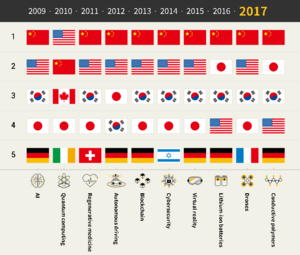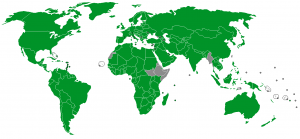Delicieuxz
[H]ard|Gawd
- Joined
- May 11, 2016
- Messages
- 1,667
According to a study by Nikkei, as of 2017, China was the world's leading tech patent filer in 9 out of 10 categories. That represents a notable change from pre 2013, when the US typically held the lead in half of the 10 categories, while China didn't even hold the 2nd position in half of the categories until 2009
Since 2013, when China and the US were tied for the number of tech categories in which they filed the most patents, China continued to pull ahead in more categories.
Report overview: China beats US in key patents to secure technological dominance – report
Report presentation: Patent Wars in Digital Era

Since 2013, when China and the US were tied for the number of tech categories in which they filed the most patents, China continued to pull ahead in more categories.
Report overview: China beats US in key patents to secure technological dominance – report
Report presentation: Patent Wars in Digital Era

TOKYO -- China and the U.S. are competing to be the world's technological master 10 years from now, according to a Nikkei study of patent data in 10 categories, including artificial intelligence, blockchain and drones. Judging by the number of applications filed, China has pulled away in nine of the 10 categories, with tech giants Baidu and Alibaba Group Holding proving to be the major innovators.
According to another data set, one that measures patent quality, the U.S. remains a formidable force. By this yardstick, 64 of the global top 100 companies are currently American.
China scored an overwhelming victory in 2017, holding the top spot in nine categories. It accounted for 49% of all applications in all 10 categories that year.
Last edited:
![[H]ard|Forum](/styles/hardforum/xenforo/logo_dark.png)
